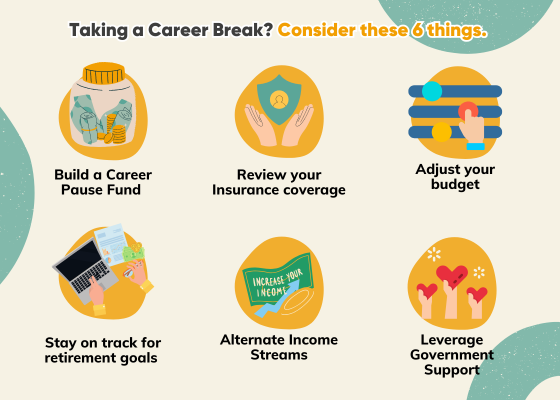Note: It was announced in November 2023 that MoneyOwl will be acquired by Temasek Trust to serve communities under a re-purposed model, and will move away from direct sale of financial products. The article is retained with original information relevant as at the date of the article only, and any mention of products or promotions is retained for reference purposes only.
______________
Will the increase in the Basic Retirement Scheme affect your retirement plans? Read on to find out more.
During Budget 2022 on 18 February, Finance Minister Lawrence Wong announced that the CPF Basic Retirement Sum or BRS for short will be increased by 3.5% every year from 2023 to 2027 to keep pace with the rising standards of living. The BRS is $96,000 this year and the table shows how the new numbers will look like for the coming years for each successive cohort turning 55 years old in that year.
| Year turning 55 | Basic Retirement Sum |
|---|---|
| 2022 | $96,000 |
| 2023 | $99,400 |
| 2024 | $102,900 |
| 2025 | $106,500 |
| 2026 | $110,200 |
| 2027 | $114,100 |
Now if you’re going to turn 55 years old in 20 to 30 years’ time, the cogs in your brain would probably be frantically working out the numbers to figure out how much your BRS is going to be by then. No need to faze as we have worked out the figures in the table below assuming the 3.5% growth rate persists.
| Current Age in 2022 | Basic Retirement Sum @ 55 |
|---|---|
| 45 | $135,500 |
| 40 | $161,000 |
| 35 | $191,200 |
| 30 | $227,000 |
| 25 | $270,000 |
If you are currently 25 years old, $270,000 may seem like an awfully huge sum of money and you wonder how you would ever achieve this amount, and consequently would you ever be able to retire? The good news is that most median income earners would be able to do so based on a combination of steady contributions to your Special Account and the power of compound interest. Ministry of Manpower recently released data on the gross monthly income from work in 2021. We estimate that the median salary for a young person aged 25 to 29 is about $3,500 per month. This means being able to contribute about $210 per month to your SA which will steadily increase as you earn more and when the allocation percentage to SA increases with your age.
Using our CPF Analyser, such a young person would be able to accumulate close to $340,000 in his Special Account alone by the time he turns 55 which is more than sufficient to meet the BRS by then. You can see that the CPF system was designed to set you up for success so there is no need to be overly concerned even if the BRS continues to increase annually. Put it even more simplistically, though the BRS increases by 3.5% per year, median household income in Singapore has similarly grown by 3.1% annually over the last 10 years. Couple this with the 4% risk free interest that you earn on your SA monies annually, you can be assured of being able to keep pace with the BRS increase easily. In fact, by 2027, 8 in 10 Singaporeans would be able to attain BRS by the time they turn 55 years old.
When your BRS increases, your future CPF LIFE payout will correspondingly increase too to ensure that your purchasing power would be the same by the time you reach 65 years old. If the Basic Retirement Sum didn’t increase and remained at $96,000, the $850 payout would be worth only about $400 in 40 years’ time! The assurance is that you DO NOT need to top up your CPF to the BRS by the time you turn 55. Even if you do not have the BRS, you can still get a CPF LIFE payout albeit a lower amount.
| Year turning 55 | Basic Retirement Sum | CPF LIFE Payout at age 65 |
|---|---|---|
| 2022 | $96,000 | $850 |
| 2023 | $99,400 | $870 |
| 2024 | $102,900 | $900 |
| 2025 | $106,500 | $930 |
| 2026 | $110,200 | $950 |
| 2027 | $114,100 | $980 |
So, if the BRS increase isn’t really something to be concerned about, why are people in the finance community talking so much about it? It depends on which side of the fence you are on.
The BRS increase is good news for those who want to top up to their CPF to earn the good risk-free interest, build up their retirement savings and earn tax relief. Back in 2016, when the new retirement sums were announced, they were expected to increase by 3% per year – 2% for long term inflation + 1% for changes in standards of living. With the percentage adjustment increased to 3.5%, it means previous projections would need to be adjusted as there is now slightly more room to top up your CPF account. You can only top up to your Special Account up the prevailing Full Retirement Sum (which is twice the BRS) or to your Retirement Account up to the prevailing Enhanced Retirement Sum (which is thrice the BRS).
The BRS increase could be bad news for those who want to withdraw more money from their CPF under the various schemes. For those turning 55, they can look forward to withdrawing balances in their Special and Ordinary account above the BRS, if they so wish to do so. A higher BRS simply means more needs to be set aside in RA, translating to slightly lesser which can be withdrawn in lump sum cash at 55. The BRS is also the benchmark used to determine whether you can transfer some of your CPF balances to your loved ones, i.e. spouse, parents, siblings etc. Likewise, when BRS is raised, it means lesser can be transferred to them as you have to retain more for your own retirement goals. The BRS is also the amount you need to have in your Special Account before you can use monies in your Ordinary Account to pay for your house beyond the valuation limit or for a second property. A higher bar could potentially result in you having to use more cash to pay for your property.
As the BRS affects our ability to use CPF savings, one of the strategies you could consider based on your financial situation is to attain the prevailing BRS in your Special Account as soon as you can by either transferring OA funds to your SA or doing a cash top up. As the BRS increases by 3% or 3.5% per year, and your SA earns 4% interest annually, once you hit the BRS, you don’t ever have to worry about keeping up with this increase. This means all the potential restrictions on use of CPF monies associated with BRS is mitigated. If you’re a younger person, topping up to the FRS could be a tall order for you especially since the money will be locked up in your SA for the next 10-20 years, money which you might want to retain some flexibility to meet your short- or medium-term goals.
Need help making sense of the BRS changes and how it would affect your retirement plans? Why not try our Comprehensive Financial Planning service today? Your personal financial health report includes an analysis of your CPF and how it will grow to form the foundation of your retirement income.




